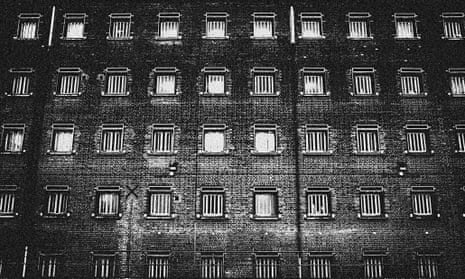HMP Pentonville is a huge category-B prison situated in the heart of Islington – the north London borough that mixes champagne socialists with tracksuit-clad boys who can wheelie all the way from Holloway to Kings Cross on stolen Boris bikes. During my year inside, I spent time in some of Britain’s most notorious nicks. They were all threatening, alien environments – but Pentonville felt a shade more extreme.
And this week’s report on Pentonville by the chief inspector of prisons is one of the most damning accounts I’ve read about British prisons – fiction included. Despite the inspector’s highly critical 2014 report on the same prison, standards have slipped further: a decent, stable regime for Pentonville inmates was promised, but this report imparts the contrary with vicious clarity.
On arrival in Penonville, I had to wait in an unmonitored holding cell with 20 other inmates – some looking at their feet in dejection, others desperately trying to impose a hierarchy as quickly as possible, as macho men forever will. It was tense to say the least – an all-star line up of neck-tattooed nutters, addiction-riddled junkies, wide-eyed guys in their not-guilty suits who’d never expected to end up here, and me.
Since my release, I’ve sometimes felt like my stories of Pentonville have become over-dramatised, as though I had combined my real-life experience with fantasy learned from an ITV docudrama. You know the feeling where a story is so extreme, you begin to feel like people are looking at you as if you’re lying, despite telling the truth.
But the report from the chief inspector of prisons has confirmed everything I remember. The prison is called out for overcrowded – it’s designed to hold 900 people but currently houses more than 1,300. While I was there, I shared a cell designed for one person with a guy going cold turkey, projectile vomiting from both ends into a cell toilet that lacked any type of screen.
Then there’s the drug problem. In 2011, when I was inside, drugs were epidemic: I’d be woken up by the clank of my lock at 7.30am, leave the cell and see people openly sprinkling heroin in their roll-up cigarettes. But this report shows that things have got worse. Drugs are significantly easier to get in Pentonville than at the time of the last report, according to inmates: 37% declared that they had a drugs problem on entering the prison; an additional 9% said they had developed a problem since being inside; and a staggering 14% said that while inside they had received no assistance with their drugs problem.
Many prisoners are being isolated because of their bad behaviour, and once isolated they are denied TVs and radios. Couple that with the shocking illiteracy levels of the prison population, and a cell starts to become a sensory deprivation tank that leaves an inmate to ruminate over his anger, anxieties and neuroses for 23 hours a day.
In my experience, having an occupied mind and a purpose in prison is part of a virtuous cycle – but if you’re not working or enrolled in education, you really feel like nothing changes except the plot of EastEnders. When I was active I felt fulfilled, and subsequently had better communication with my loved ones, more optimism and a drive to improve my life inside and upon release. But in Pentonville a quarter of inmates are in education, and just 3% in offender behaviour programmes; 58% said that finding a prison job was difficult or very difficult – and 53% said they wanted to go to the library but never did.
The final part of the report that I find worrying is that it highlighted the lack of association time (to interact with other inmates and phone friends and family). Some inmates were only being let out once every two days, and more than half said they left their cells for less than two hours a week. They rarely got out during the evening, so couldn’t contact people who worked during the day – 62% of inmates had experienced problems accessing telephones.
Among the catalogue of dereliction, I find this to be the most potentially damaging for inmates, and subsequently the rest of us on “the out”. When people are prevented from maintaining meaningful relationships with their loved ones, they become discontented in the short term. In the long term they become more alienated and institutionalised, and subsequently harder to rehabilitate. This makes them more likely to return to crime – a no-win situation for society, even if you lack a shred of sympathy for prisoners.
I may well enrage middle England when I say that prisoners are some of the most vulnerable people in Britain – but, at a distance behind their victims, they are. These people are unrepresented in the mainstream, and shunted into cells in places that aren’t fully understood by the public. Maybe you should forfeit your rights when you commit a crime, but if these unwanteds are left completely unsupported, they will become an even greater threat to the law-abiding public – a real worry for us all, when you consider that a staggering 92% of inmates feel that nobody had prepared them for release.
